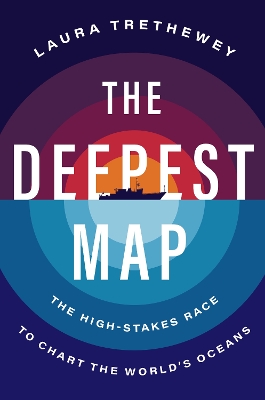Interesting And Comprehensive Examination Marred By Leftist Ideology. If you can overlook (or if you like) the *frequent* bigotries against "males", "white males", and/ or "rich white males" and if you agree with Greta Thunberg re: "Climate" "Change" (or whatever the hell they're calling it now as you read this review), you're going to love this book. The star deduction comes specifically because of such slanted "reporting". (I read the Audible version of this book and thus can't comment on the length of its bibliography one way or another.)
If the above doesn't apply to you, you should read this book anyway.
Because when it stays on subject about the efforts to map the seas and specifically the deepest parts of them, both cutting edge and throughout history, this book actually is quite good. Tretheway manages to show both the necessity of the effort and just how dangerous it can be in both academic and very real senses, along with all of the problems associated with having the data or not as well as gathering the data in the first place. Along the way we're going to encounter quite a few legendary people, some truly globally famous even well outside their exploratory regions, others famous only within very narrow, sometimes quite niche, fields - but famous nonetheless. She manages to make the reader care about both the historic exploration and the current efforts, up to and including even using AI drones to get data humans otherwise can't easily obtain. And all of this is quite remarkable indeed.
It is simply a shame that she had to integrate so much bigotry into this reporting - it truly could have been a truly remarkable work otherwise. And yet, the tale as written is still strong enough even with the integrated bigotry to still warrant a read by truly everyone remotely interested in the oceans for any reason.
Recommended.
